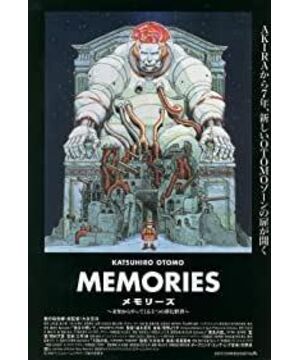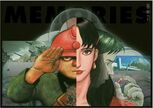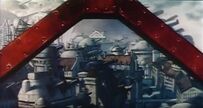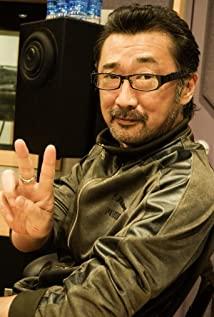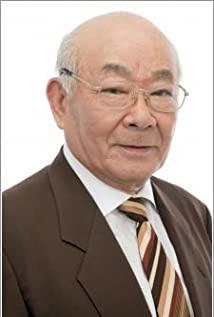I heard that it is the most difficult Japanese animation ever to understand (one of them). After watching it, let's talk about my thoughts. Maybe we can find some clues from it to help us understand the author's expression cryptic information.
The trilogy runs through a timeline: the past, the near past, and the future. It's just that the order of playback is reversed.
The three short films actually have a related keyword: Japan!
The word "memory" is actually a generalization of the entire film, and all the stories are Japanese memories. Let's take a look at them one by one.
The Land of Cannons---Gloomy Memory
of Militarism This is the memory of Japan still under the rule of militarism. The dark style of the short film is also the color of the memory of that period. All people are soldiers is also a portrayal of the Japanese life at that time. People's life, work and study were all in the service of war. At that time, there was no country that wanted to invade Japan. The enemy of the country of artillery never appeared in the film. On the contrary, Japan accelerated its foreign aggression and expansion. The pace of the rapid transformation to militarism led the entire nation and country into catastrophe. The end of the film is thought-provoking, and the national hero to be admired is just as vain, tyrannical and childish as the villain on the child's paper.
Worst Weapon - The Economic Bubble of the 1980s
The song and atmosphere at the beginning of the short film makes people feel like they are in the 80s. So this is also a story about memory.
After watching the short film, you can see that the mysterious weapon was actually jointly developed by Japan and the United States, but the people who took the pill were ordinary people who didn't know the truth. But he didn't know it, and instead became the target of being intercepted. A phenomenon of poison gas is that it can make plants bloom. Wherever it goes, the flowers are beautiful and beautiful, but the hidden murderous intention is extremely dangerous, which means that the short-term prosperity is followed by the Great Depression. Who was the one who came to "rescue" Japan at a critical moment, it was the United States, the initiator, but the ending was extremely ironic. The United States still left the final big trouble to Japan, which may be his original intention.
We can look at the background of the Japanese economic bubble in the 1980s:
In the late 1980s, in order to stimulate economic development, the Central Bank of Japan adopted a very loose financial policy, encouraging capital to flow into real estate and the stock market, causing real estate prices to skyrocket. In September 1985, the finance ministers of the United States, the Federal Republic of Germany, Japan, France and the United Kingdom signed the "Plaza Accord" and decided to agree to the devaluation of the dollar. After the depreciation of the US dollar, a large amount of international capital entered Japan's real estate industry, which further stimulated the rise in housing prices. From 1986 to 1989, housing prices in Japan tripled.
Seduced by soaring housing prices, many Japanese are starting to lose their patience. They found that speculating in stocks and real estate was faster, so they took out their savings to speculate. By 1989, real estate prices in Japan had skyrocketed to absurd levels. At that time, the land area of Japan was equivalent to California, and the total market value of its land prices was four times that of the entire United States. By 1990, the land price in Tokyo alone was equivalent to the total land price in the United States. The average working class cannot afford to buy a house in a big city even if it spends a lifetime of savings. Only billionaires and executives of a few large companies can afford a house.
All bubbles burst at some point. After 1991, with the withdrawal of international capital after profit, the Japanese real estate bubble driven by foreign capital quickly burst, and real estate prices plummeted. By 1993, Japan's real estate industry had completely collapsed, and companies had closed down one after another, leaving behind as much as $600 billion in bad debts.
Her Memories-Maybe Only Memories in the Future
The aria of Puccini's "Madame Butterfly" has been echoed in the short film. Madame Butterfly tells the story of a Japanese woman who was betrayed by her so-called American "husband". Die, which is the same fate as the heroine of the story, a memory of betrayal, an empty shell of the icy wreckage of a bustling past, left only by machines, as a deadly memory still threatens the phagocytosis of people in the future , a memory that traps not only himself, but also threatens those who try to save her. This may be a kind of image insinuation.
View more about Memories reviews


